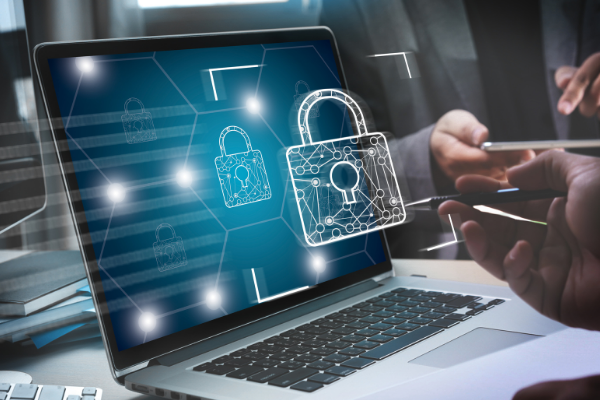Employee data breaches have hit the highest level in at least five years.
According to recent data provided by the law firm Nockolds, reports to the Information Commissioner’s Office of breaches of employee data jumped, from 2,279 in 2022 to 3,208 in 2023 – Which is a rise of 41%. The number of reported breaches relating to employees’ data is at the highest level since at least 2019, when 3,010 breaches were reported to the ICO.
Ransomware attacks on employee data jumped by 57% over the past year, from 352 to 554. Ransomware is malware that attempts to unlawfully encrypt files on a host computer system. Ransomware makes employee data unavailable through encryption or deletion. The attacker requests payment in return for restoring the data.
Hackers target employers as they hold a huge amount of valuable, sensitive data on their employees. Employers may be in breach of contract if they pay staff late, and face claims for loss of data, which makes them vulnerable to ransom demands.Having a dedicated team of payroll providers to manage employee payroll through secured software means your staff will get paid on time each month without the stress of late or payment issues.
Cyber security affects HR just as much as IT
Nockolds reported the following: “These numbers show that despite increased investment in cyber security, determined hackers are finding ways to gain access to employee data. While cyber security is an IT domain, breaches involving employee data inevitably fall within the jurisdiction of HR and create risks that need to be effectively managed.”
Hackers access 270,000 payroll records of armed forces personnel
Even when data is leaked accidentally, employers could be liable for damages. While the ICO often favours an informal reprimand, there is no guarantee that this is the approach that it will take. In addition, employees might be able to seek financial compensation and there is also a risk of serious reputational damage being caused.
Nockolds mentioned that “good cybersecurity starts with employees. It doesn’t matter how robust defences are if employees are not being regularly trained on cybersecurity protocols. The rise in employee data breaches suggests that there would be value in enhanced training for staff in response to rising threat levels. This would also help demonstrate to the ICO that an employer is taking their data protection responsibilities seriously”.
How data breaches can affect employees
Under the General Data Protection Regulations employees can bring claims for accidental data security breaches even if they have not suffered a financial loss but merely experienced stress or anxiety.
Since remote working kicked off during the pandemic it has since become difficult for employers to have the same security protections in place across all devices. It also entails higher risk of equipment being lost or stolen, increasing the risk of physical breaches alongside cyber-attacks.
The Importance of Due Diligence to protect workers
Due diligence requires taking all reasonable steps to protect workers from harm. No matter what industry you work in, ensuring your staff’s safety and wellbeing is paramount. For payroll providers and HR consultants, the importance of due diligence is even more significant as they must safeguard employees from potential data breaches. Below, we’ve put together a list on how you can stay compliant and ensure your payroll data is secure.
Ensure each employee is aware of cybersecurity
Cybersecurity awareness is crucial for every employee. Protecting sensitive data from breaches is not just a technical issue but a fundamental business responsibility. When employees are educated on cybersecurity practices, they become the first line of defence against potential cyber threats. This protection helps prevent unauthorised access to personal information, reducing the risk of identity theft and financial loss.
From a legal standpoint, failing to protect sensitive employee data can have severe repercussions for businesses. Data breaches can lead to substantial fines, legal action, and damage to the company’s reputation. Ensuring that employees are aware of the potential risks and how to mitigate them is essential for maintaining compliance with data protection regulations such as the General Data Protection Regulation (GDPR). By prioritising cybersecurity training, businesses can create a safer work environment and protect their most valuable asset – their employees.
Protect work equipment with antivirus security
Antivirus security is mandatory for every business as it forms the first layer of defence against malware, viruses, and other malicious software. By installing trusted antivirus software on all work equipment, businesses can detect and neutralise threats before they cause harm. This protection is crucial for preventing data breaches that can compromise sensitive employee information..
Ensure your payroll provider is ISO27001 compliant
ISO27001 is an international standard for information security management. Achieving ISO27001 compliance demonstrates that a payroll provider has implemented a systematic approach to managing sensitive company and customer information. This certification involves rigorous assessments and audits to ensure that security measures are effective and continuously improved. ISO27001 compliance reassures clients that their sensitive payroll data is handled securely. It helps in identifying and mitigating risks, enhancing data protection practices, and ensuring compliance with legal and regulatory requirements..
Security training for staff
Online security training can significantly benefit employees by equipping them with the knowledge and skills needed to recognise and respond to cyber threats. Regular training sessions can cover various topics, such as phishing, password management, and safe internet practices. These sessions ensure that employees stay updated with the latest cybersecurity trends and threats.Trained employees are less likely to fall victim to cyber attacks, reducing the risk of data breaches.
Security awareness workshops
Security awareness workshops provide an interactive and engaging way for employees to learn about cybersecurity. These workshops can serve dual purposes: enhancing cybersecurity knowledge and fostering team-building experiences. Through hands-on activities and real-world scenarios, employees can practise identifying and responding to cyber threats.
Workshops also promote collaboration and communication among team members. By working together to solve security challenges, employees can build stronger relationships and develop a collective sense of responsibility for maintaining a secure work environment. These workshops are an effective way to reinforce security training and keep cybersecurity at the forefront of employees’ minds.
Build a safe company culture
Creating a safe working company culture involves more than just implementing security measures; it requires fostering an environment where employees support each other and prioritise data protection. Encourage open communication about cybersecurity practices and make it clear that protecting personal and company data is a shared responsibility.
Confidentiality regarding pay, salaries, and personal bank details should be maintained at all times. Employees should feel comfortable reporting suspicious activities without fear of repercussions. By promoting a culture of trust and vigilance, businesses can enhance their overall security posture and ensure that everyone is committed to safeguarding sensitive information.
How PayEscape can help avoid security breaches
Partnering with a reliable payroll provider like PayEscape can significantly reduce the risk of data breaches. By leveraging advanced encryption technologies and compliant security protocols under ISO27001, we ensure that sensitive payroll data is protected from unauthorised access.
We stay up-to-date with the latest regulatory changes and cybersecurity trends, ensuring that our clients remain compliant with data protection laws. Partnering with a trusted payroll provider like PayEscape can further enhance your businesses data security and help prevent potential breaches, ensuring a safe and secure work environment for all.













